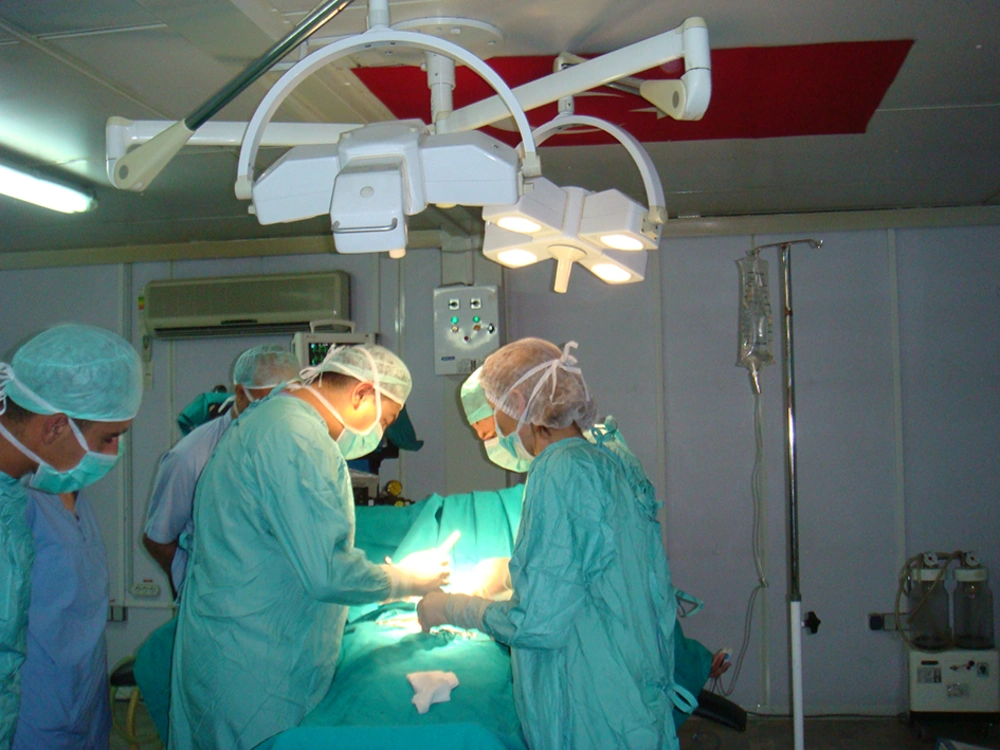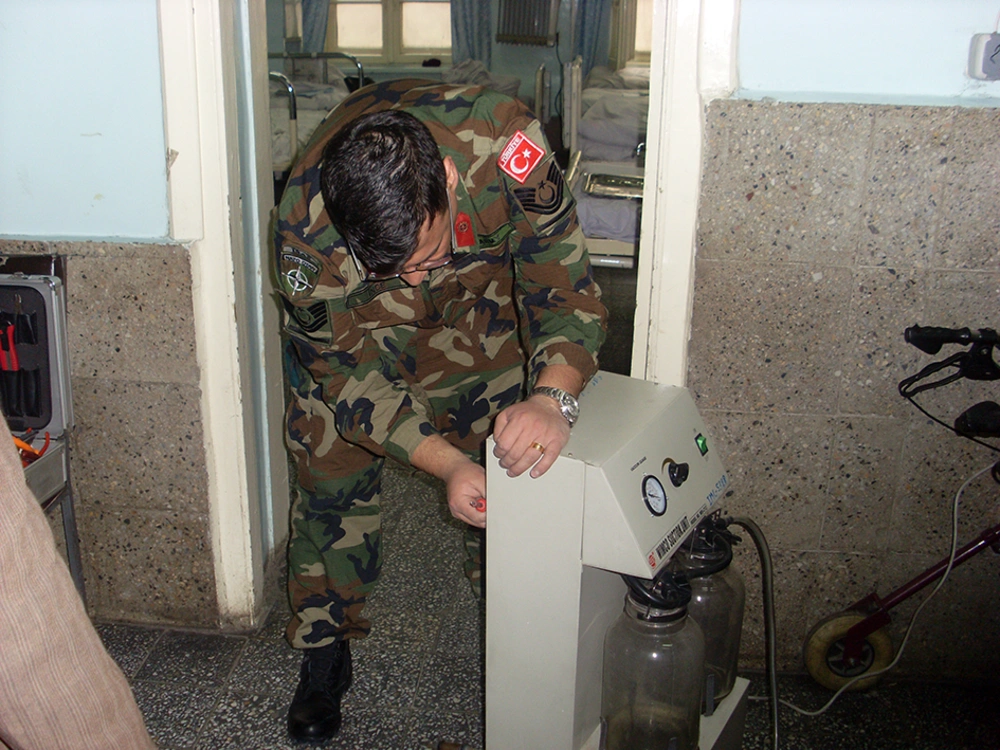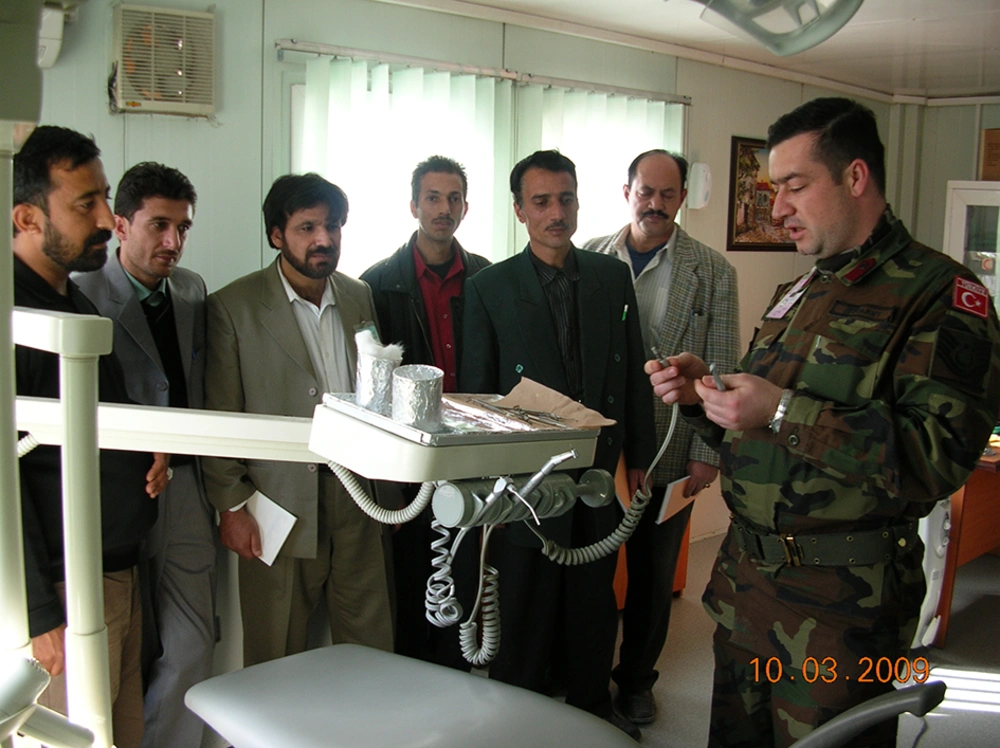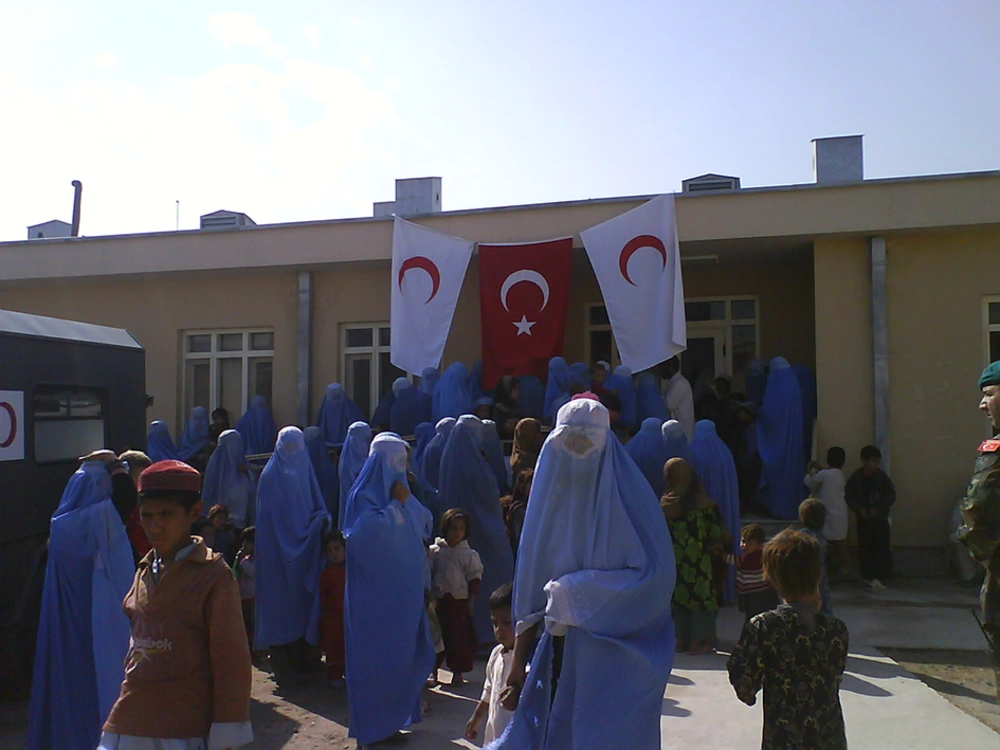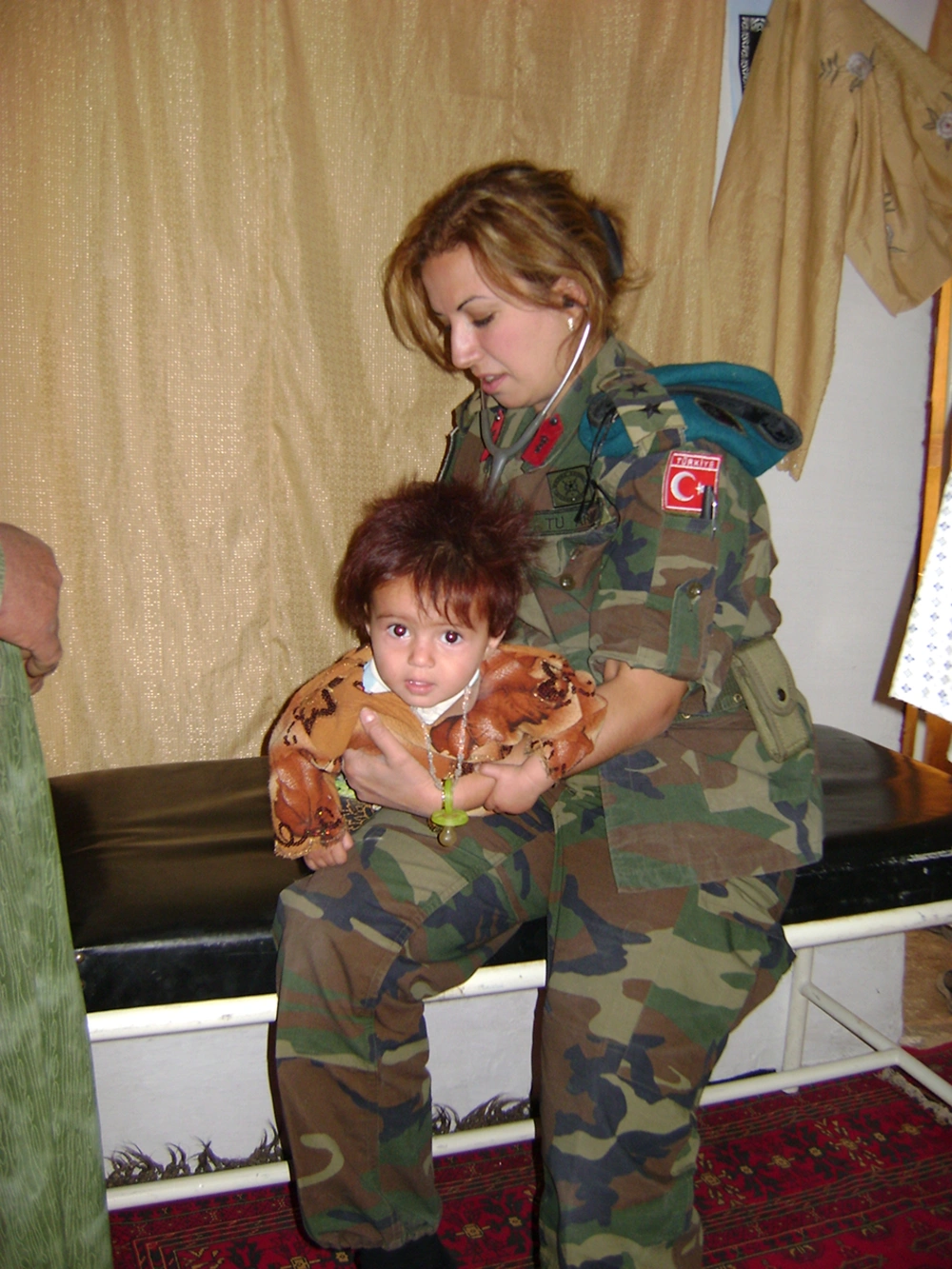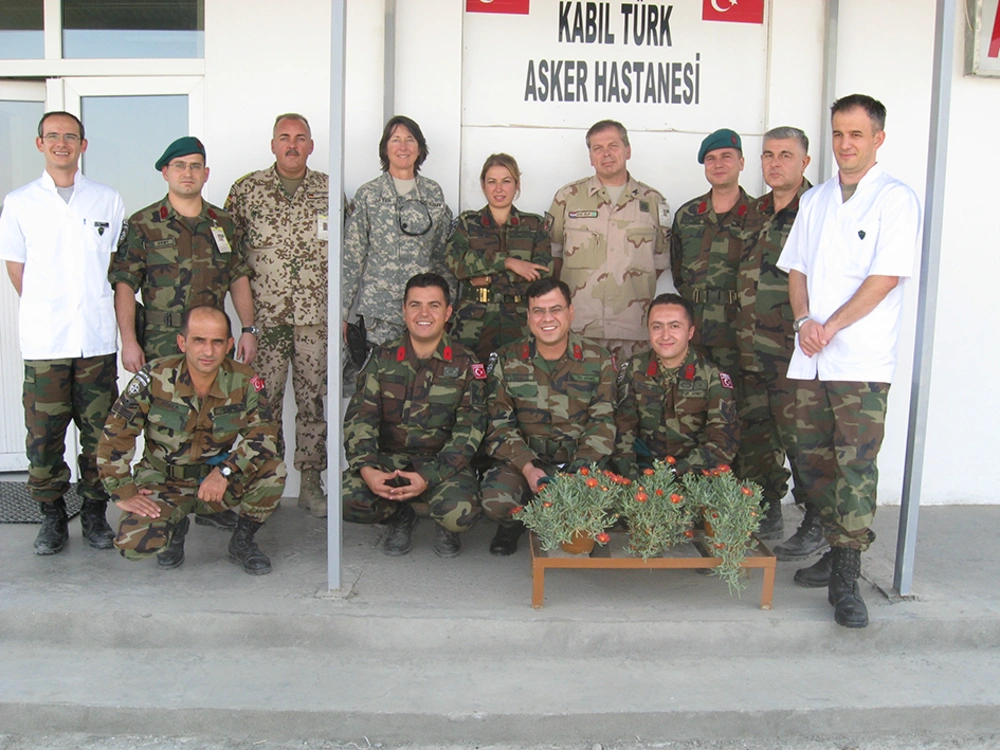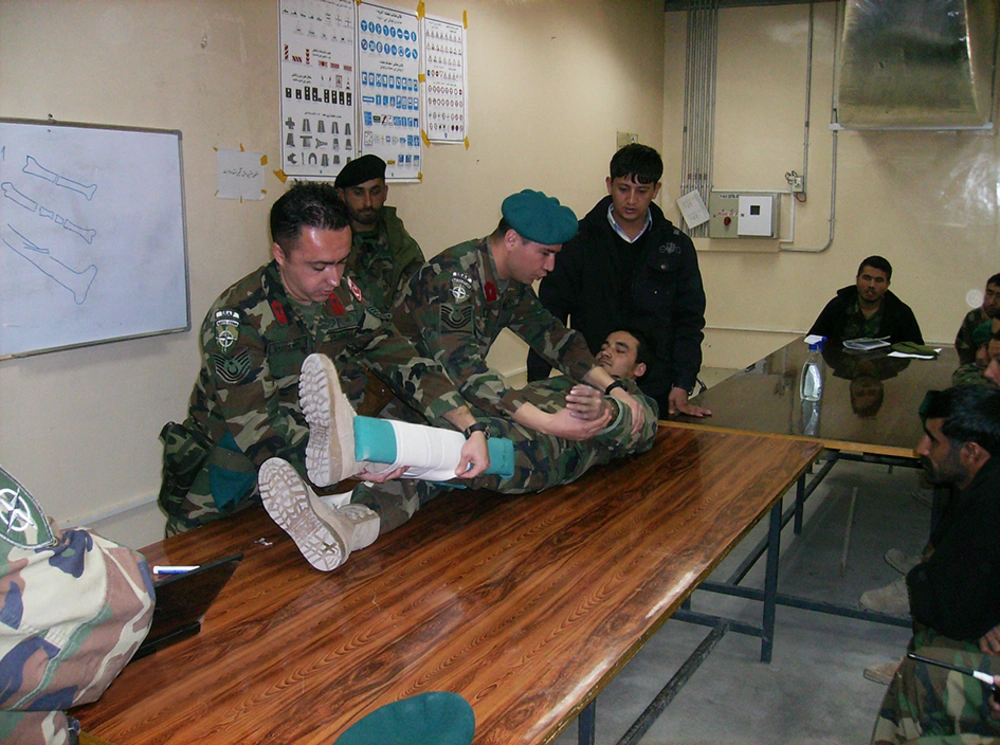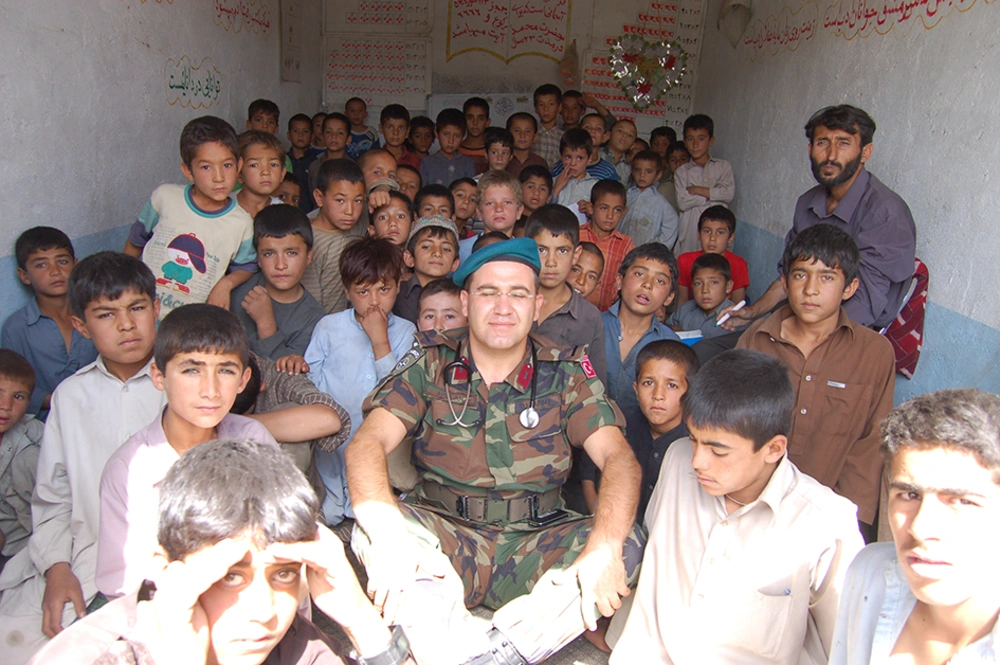1. Background
In Afghanistan, there are currently two operations taking place independently of each other: Operation Enduring Freedom and the work of the International Security Assistance Force (ISAF). The United States embarked on Operation Enduring Freedom in Afghanistan in 2001 in the aftermath of the attacks on the World Trade Centre and the Pentagon on September 11th (1). Turkey has no role in this operation. The ISAF operation was set up to provide support for the Afghan Transitional Authority on January 16th 2002 following the Bonn Conference of December 5th 2001 and UN Security Council Resolution 1386 of December 20th 2001. ISAF has no responsibility or duty to fight terrorism. The Turkish Grand National Assembly authorized the government to charge the Turkish Armed Forces to take up duties in Afghanistan, following a vote on October 10th 2001 (resolution 722) (2). To date, the Turkish soldiers in Afghanistan have generally carried out security and policing duties in the Kabul region. They have also undertaken responsibility for a variety of infrastructural services and helped in humanitarian aid and in the construction of hospitals, schools, infirmaries, water storage and water distribution networks (3). Operations supporting peace generally took place in a complex environment and under the continuing scrutiny multinationally of the media. Success requires compromise and is gained in the long term. Every country that has participated in this international strategic process has gone through innumerable experiences. In all the related literature, the importance of winning the hearts of the people involved is strongly emphasized. This article explains how the Turkish Armed Forces won hearts in Afghanistan, and outlines the projects they helped complete and the medical services they provided.
2. Kabul Turkish Military Hospital (Camp Dogan-Role 2)
This is a medical set-up at Role 2 level, with nineteen Turkish staff: of these six are officers one first aid doctor, one specialist in internal medicine, one specialist in anesthetics, one specialist in general surgery, one pharmacist and one dentist), five non-commissioned officers (one x-ray technician, one laboratory technician, one surgical technician, one technician responsible for repairing medical equipment and one logistics person) one ambulance driver, four soldiers and three female nurses. One Afghan doctor is also employed on contract in order to diagnose regional diseases more readily, to access Afghan National Medical Services more easily and to resolve locally possible logistic difficulties regarding medical equipment. One female and one male interpreter are constantly on hand in order to maintain communication with local patients. To provide medical services for ISAF personnel, to take the necessary precautions to ensure the medical protection of Turkish personnel in Afghanistan and to provide medical training for them are some of the duties of the Kabul Turkish Military Hospital. These also include, through the CIMIC (Civilian-Military Cooperation) examining and treating Afghans. The hospital staff works on a rotation system and can thus provide uninterrupted medical service. They reside in the hospital and so can respond to emergencies speedily 24 hours a day. The hospital has four unarmoured ambulances and a total of twelve beds two of which are for intensive care. It also has one operating theatre. Emergency, x-ray and biomedical units are housed in the main hospital building. Outside the hospital building, at a distance of about two hundred meters, is the container-based outpatient clinic with a waiting room, examination areas where three doctors can see patients at the same time, an ultrasound room, laboratory, pharmacy and dental clinic, as well as a minor surgical treatment area (Figure 1).
Afghan patients are allowed into the barracks from 08.00 am following a body search. During the examination a nurse is always present because of the circumstances of the region. As a result, female patients in particular are less reluctant to be examined by a doctor. On average, about one hundred and fifty Afghan patients are examined in one day. Following the examination, the patient’s medication is also supplied by our hospital free of charge. Surgical treatments take place once or twice a week. These include appendectomy, inguinal and umbilical hernia surgery, pilonidal sinus surgery, circumcision and operations to treat bullet wounds.
3. Health Care in Afghanistan
The health sector in Afghanistan is to a great extent supported by external resources. A large number of medical establishments have been destroyed. During the Taliban regime, many well-qualified medical personnel moved to Pakistan or to western countries. Two thirds of all doctors in the country work in Kabul. Essential medical equipment is either lacking or insufficient, and technical personnel to maintain such equipment are not available (1). The current regime insists that female patients are examined and cared for by female medical personnel. But as women were barred from education during the Taliban regime no female doctors or nurses were trained. Emergency medical services are limited to the military, and emergency services do not exist outside the main cities (4).
3.1. Assessment of Medical Threat to Military Personnel in Afghanistan
Military personnel stationed in Afghanistan are subject to a series of threats from heat, cold, sand and dust, altitude, infectious diseases, exhaustion, fatigue, and stress from being under attack by explosive devices and guns. Improvised explosive devices (IED) are now the most serious military danger, and this is increasing all the time.
3.2. Achievements in the Medical Area in Afghanistan
Contact was established with the chief medical officers of Afghan State Hospitals, and it was observed that malfunctioning medical equipment was a very serious problem. There was no biomedical technical know-how in Afghanistan. Malfunctioning equipment was just thrown into hospital storage rooms. Inspection of storage areas revealed a heart-breaking situation: equipment costing millions of dollars had been discarded in these areas because of simple malfunctions, which could have been repaired at minimal cost, and this denied patients the opportunity to benefit from them. The Medical Equipment Maintenance Technician of Kabul Turkish Military Hospital was sent to these hospitals (Rabia Balkhi, Meyvand, Indira Gandhi, Oar Hospital) within a planned schedule and a large amount of equipment was repaired (Figure 2).
Training and technical support provided at difficult times can help a people to stand on their own feet. And with that in mind we provided medical equipment technical training for ten hospitals in Kabul. Our aim was to teach them to fish rather than giving them fish, so to speak. The two-hour twice-weekly training started on March 4th 2009 and continued for five and a half months. Many letters of thanks were received from hospitals (Figure 3).
Oxygen cylinders were purchased for sixteen hospitals and six clinics in Kabul where a need had been identified. It was not possible to buy the cylinders in Afghanistan itself, and so they were brought from Pakistan. Afghans who were due to go on the Hajj (The Annual Islamic Pilgrimage) were medically examined in tents set up at KIA (Kabul International Airport). We observed that disposable items like urine containers, which in Turkey are thrown away after being used once, were very scarce in Afghanistan and were being washed and used repeatedly. Following discussions with the Afghan Ministry of Health, the need for such items was identified, and such consumables were obtained through CIMIC.
3.3. Medical Civic Action Program
We set up a temporary field clinic to provide limited medical treatment to the local population. Large crowds came out to meet our teams. On each Medical Civic Action Program (MEDCAP), about three hundred patients were examined and medicines were supplied from our stocks. Patients who needed surgical treatment or whom required more extensive treatment were brought over to our hospital, and their problems were resolved at Role 2 level (Figure 4-5).
In Kabul, apart from Turkey, medical services at Role 2 level are provided by the NATO supported French Hospital, with medical support from other countries at Role 1 national responsibility level. A number of ISAF military medical personnel visited our hospital. These included colleagues from the Netherlands, the United States, the United Kingdom, Germany and France. Similarly, the Turkish team visited the medical establishments of other countries in Afghanistan to observe their capacity and facilities. We carried out patient consultations. These were important in terms of our multinational capabilities, as a given country may be limited in what it can achieve in its particular region and thus can obtain support from other countries. In that context Deployment Health Surveillance System of Reports (EpiNATO), was very important for medical coordination. In addition, Medical Situation Report (MEDSTREP = SAGDURAP) were prepared and sent to ISAF Headquarter and Turkey. This monthly report listed all the medical activities undertaken as well as costs and requirements. Particularly when medical services are offered within the borders of another country, reports must include such planning and indicate the capabilities and facilities; both of the host country and of the countries of the visiting teams (Figure 6).
First aid training was planned and given to the Afghan training unit in Darul Aman. It is extremely important that in Afghanistan - where there are frequent armed clashes soldiers - should be able to administer first aid to themselves or their friends so as to minimize casualties. With this in mind, we prepared Self Aid Buddy Aid (SABA) training. This was carried out over two days. The first day’s training covered the importance of first aid, basic principles and theory. The second day was devoted to practical training and covered situations like unblocking the air passage, applying tourniquets and bandages to stop bleeding, stabilizing broken limbs and transporting the wounded (Figure 7).
4. Conclusions
It is clear that in operations undertaken to support peace abroad, the establishment of a multinational set-up in medical facilities in such locations is essential in order to make the best use of available resources and to provide an effective service. Through appropriate planning, each country can in this context offer health care in different categories. The Turkish Armed Forces provide medical services at Role 2 level in Afghanistan. The Turkish Armed Forces also work in cooperation with the medical services of other countries and coordinate as necessary. The two countries enjoy warm relations thanks to a common religion and close historic ties. Turkey’s taking up a prominent and effective role within the multinational force in the country has enhanced this relationship (5, 6). The Turkish soldiers have clearly won the hearts of the people with the support of medical team. The Turkish arm badge has become a symbol of trust (Figure 8).
